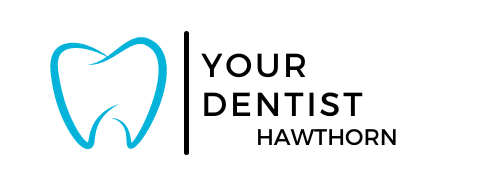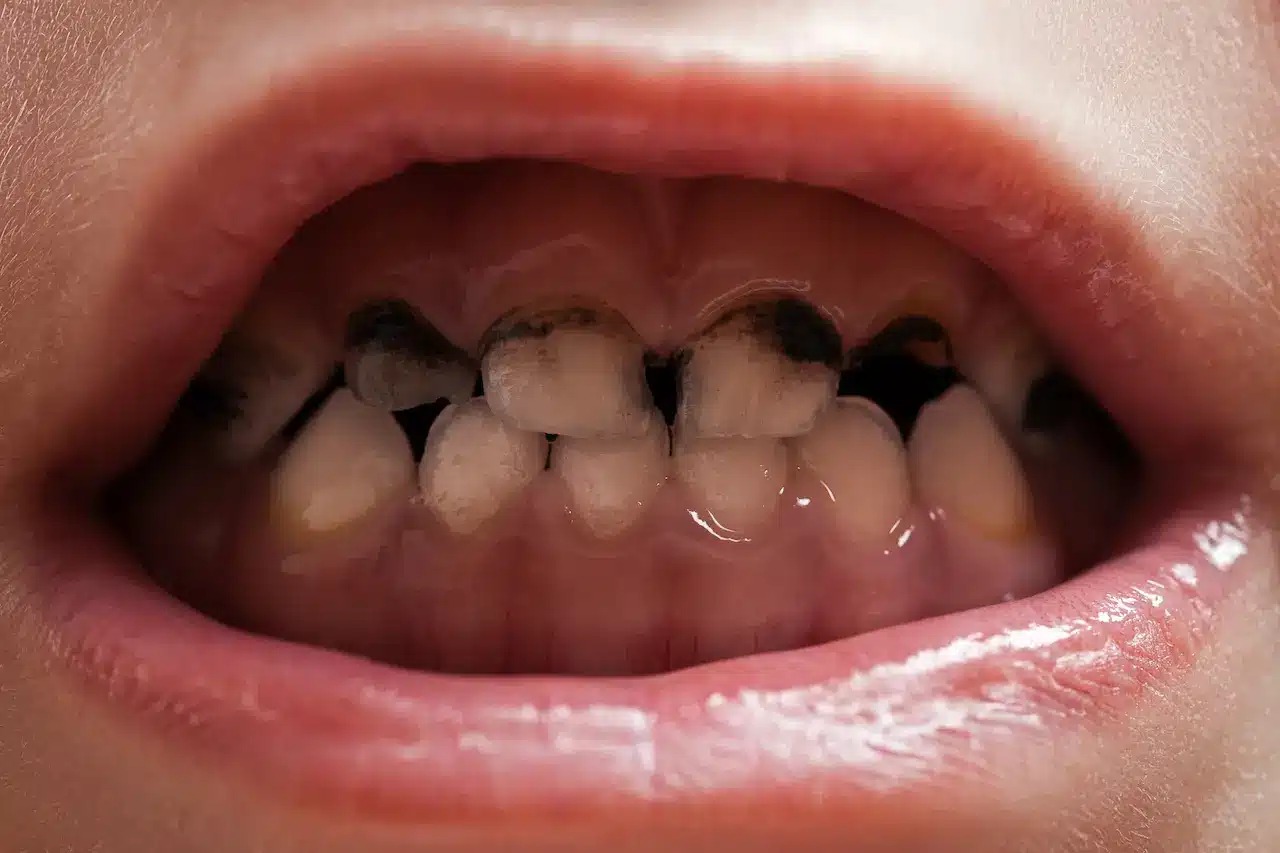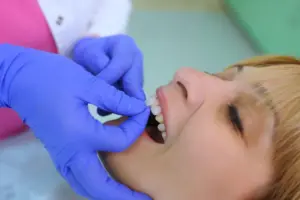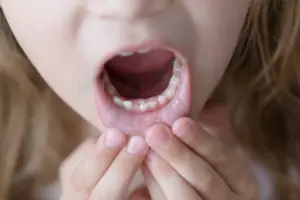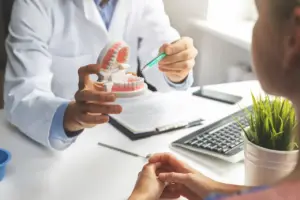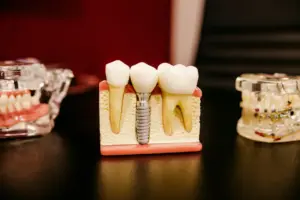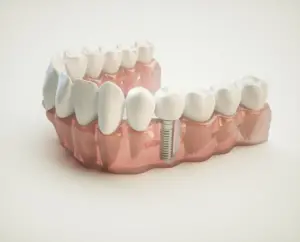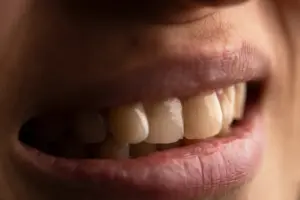10 Bad Dental Health Habits You Should Avoid
Table of Contents
ToggleOral health is an important part of your daily life. Brush your teeth twice daily, floss every day and visit your dentist at least twice per year for cleanings and examinations. To keep your teeth in great shape, you must practice good oral hygiene and avoid habits or activities that can damage them. Find out more about the habits that can damage, chip or crack your teeth.
1. Get Oral Piercings
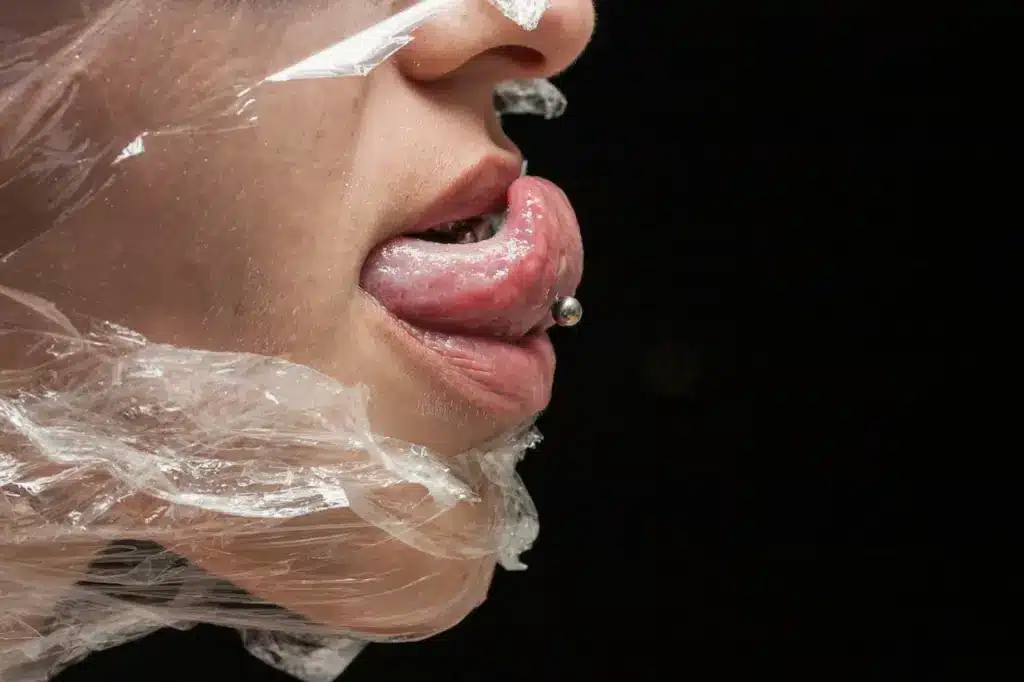
Some people pierce the lips or tongue to make themselves stand out. Although piercings are a great way to express yourself, they can also be dangerous. Oral piercings can cause:
- If you accidentally bite your teeth, they may chip.
- You can cause damage to your teeth by compromising them.
- You can cause injury to your gums by rubbing them.
- Increased risk of infection, which in some cases can be severe.
Consider getting piercings on other parts of the body instead of in the mouth. You should think carefully before you decide to pierce something. A piercing requires that you take good care of it and keep the area clean to prevent infection. Speak to your dentist if you have already had a lip or tongue pierced. They can advise you on the best ways to maintain the piercing and still practice good oral hygiene.
2. Use Your Teeth As Tools
You should not use your teeth as knives or scissors. Nor should you use them to hold things when your hands are full. You should only use your teeth to chew and tear food. You can crack or chip your teeth if you use them often to remove tags from clothing, open packages or hold keys and mail when you enter the house. The force of the tearing or the pressure on your teeth can also damage your jaw.
You could accidentally swallow items if you hold them in your mouth. You could also get sick if the items you hold in your mouth spread germs throughout your body.
Always use the correct tool for the task. If you need to remove a tag from a shirt, or open a box, grab a pair of scissors. Use a tool designed to safely remove the cap from a bottle if you have to open it. These tools will prevent you from tearing things with your teeth.
There are several ways to stop this bad habit. You can get a bag large enough to hold all your items. Wear clothing with pockets to quickly tuck away your keys after opening the front door. You can ask someone to help you carry things if you’re with them.
3. Nail Biting
You’re not the only one who bites their nails when they are nervous. According to the Cleveland Clinic, up to 30% of Americans bite their nails compulsively and find it difficult to stop on their own.
The way you bite your nails may affect your mouth. Due to the hardness of the nail and the force with which you bite, you can alter the position of your jaw or damage a tooth. Nail biting is a habit that can cause jaw and oral problems.
What can you do if you are a nail-biter? How often do you bite your nails and how serious is the problem? Some people use nail polish with a bitter taste to teach themselves not to bite nails.
You may want to consult a therapist if your habit is persistent or associated with another problem, such as attention deficit hyperactivity or anxiety. Together, you can develop a plan for breaking the habit. You might be helped to stop biting by a counsellor using relaxation techniques or behavioural therapy.
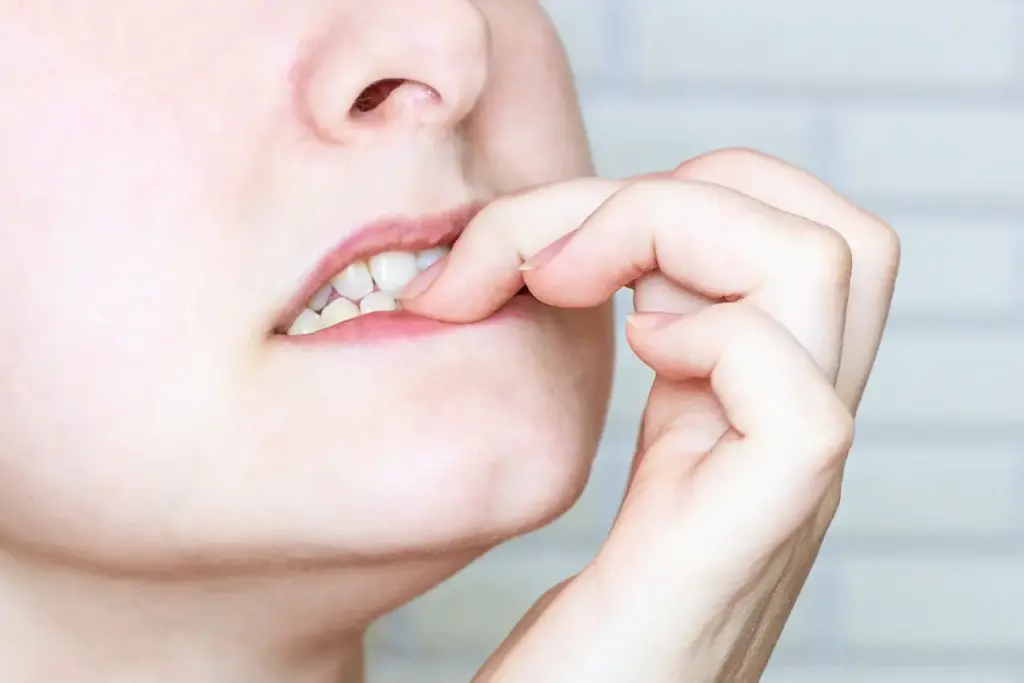
4. No Mouthguard
Wear a mouthguard while training for any sport, whether you’re a weekend warrior training to be an Olympian or a weekend warrior. Athletes without a mouthguard have a 60% higher chance of suffering dental injuries, tooth fractures, jaw breaks or having their tooth knocked.
Dental injuries are more prevalent in sports involving collisions and contact, like hockey and football. There are serious health risks even in sports that do not involve contact, like gymnastics, swimming, and dancing. Wearing a mouthguard to protect your gums, teeth and jaw is, therefore, a good idea.
There are several options available when you want to get a mouthguard. You can buy some over-the-counter and they are designed as “one size fits everyone.” Others have a boil-and-bite design that allows you to mould them to fit your mouth once heated. The best mouthguards are made to fit your mouth and are custom-made by your dentist. A custom-made mouthguard that fits perfectly will help reduce the chance of injury, whether on the playing field, the swimming pool or the dance floor.
5. Grinding your Teeth
Many people grind their teeth, including stress and misaligned bites. Many people grind their teeth unconsciously while they sleep.
The teeth are worn down by teeth grinding, or bruxism. Over time, it can wear down the enamel. This can lead to chipping or fracturing of teeth. The grinding of teeth can cause headaches, jaw pain and even a fracture.
You can protect your mouth by having your dentist make you a nightguard that you wear at night. The nightguard will cushion your teeth and reduce the pressure between them.
Relaxation techniques can be learned to reduce tension and the likelihood of clenching or grinding your teeth. Stress can be reduced by using controlled breathing techniques, meditation and more exercise. Your dentist may also suggest taking a muscle-relaxing medication before bedtime to relax your jaw.
6. Sugary and starchy foods
Diet plays an important role in the health of your mouth, teeth and gums. You can develop tooth decay by eating foods such as potato chips and candy that are rich in sugars and starches. Sugary drinks can also increase your risk of gingivitis or periodontitis.
The bacteria in your mouth, and those on your teeth, will eat leftover food or drink residue. They produce acids as they eat. Your oral health can be affected by what you eat, and how often you eat. You can wear away your enamel if you snack throughout the day.
Limit your intake of starchy or sugary foods to prevent cavities. Brush your teeth after eating to remove any food particles. If you are unable to brush your teeth immediately, you can rinse your mouth out with water. You should also limit your eating and drinking during mealtimes to prevent bacteria from damaging your teeth.
7. Chewing Ice
It can be tempting to chew on ice during a hot day in the summer. Is eating ice harmful to your teeth? The force required to chew on ice can cause cracks to form in the enamel of your teeth.
It is best to find another way to cool down if you enjoy chewing on ice. You can cool down by spraying yourself or drinking cold water. You can reduce the desire to chew your drink by removing the ice. You can avoid ice by using a straw.
Pica can occur in people with a low iron level. This is a craving to eat non-food items, like ice. You should consult your doctor or dentist if you have a strong desire to chew on ice.
8. Smoking
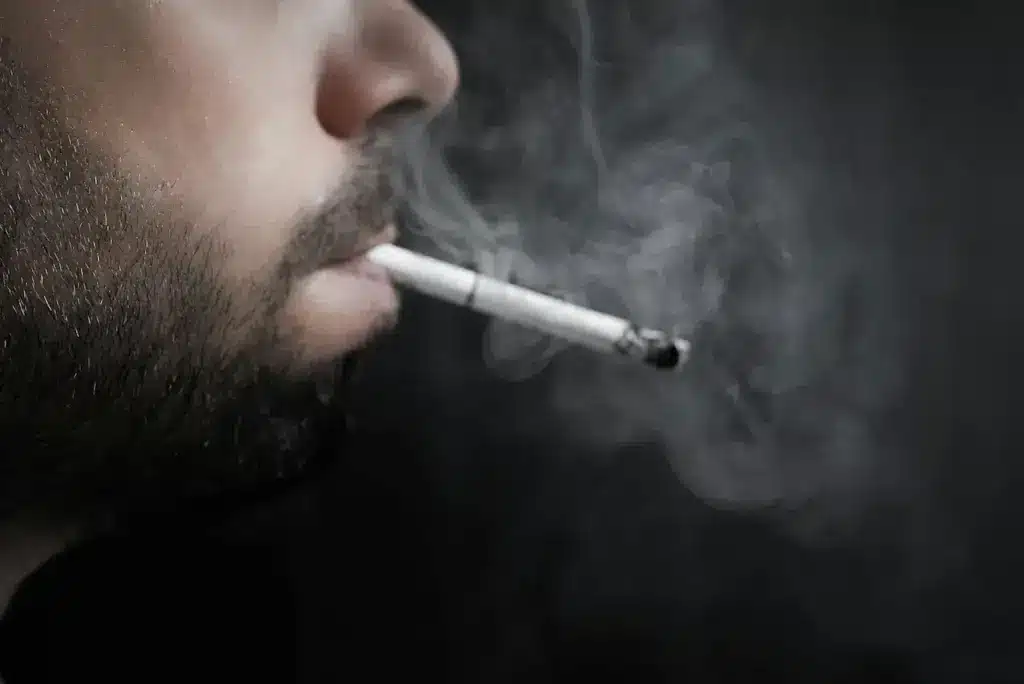
One of the most harmful habits to your gum and teeth health is smoking. You increase your gum disease risk when you smoke. Smoking slows the healing process. This means that you’ll need more time to recover from gum diseases and other oral health problems. Smoking also stains your teeth and makes them yellow. Smoke from cigarettes can also cause bad breath.
Many resources are available for you to quit smoking. Speak to your dentist regarding smoking cessation programs. To manage cravings, you can use a nicotine gum or patch. It is also helpful to have a “quit partner” who can help you on your journey of quitting smoking and hold each other accountable.
9. Chewing Pencils
It is best to stop putting a pencil in your mouth whenever you feel nervous or are thinking deeply. This will protect your teeth and gums. Chewing on pencils can cause your teeth to crack or chip, just like when you chew on ice. You may also spread bacteria and other germs to your mouth if you chew on pencils or pens.
Try a few different things to stop chewing. You can chew sugarless gum instead of a pencil. You can also write yourself a reminder, such as “Don’t put your pencil in the mouth” or “Stop Chewing!” Place the note where you are most likely to chew, for example, on your computer screen or at your desk. It will remind you every time you look at it to take your pencil or pen out of your mouth.
10. Brushing Too Hard
Brush your teeth at least twice a day for at least two minutes. Some people use too much force when brushing their teeth. Too much pressure when brushing can wear down the enamel and cause your gums to recede. This will make your teeth more sensitive.
Use a light, gentle touch when brushing your teeth to maintain the best possible condition. Speak to your dentist about whether or not you are brushing too hard. You can ask your dentist to evaluate your mouth and tell you what they think. They will also show you how to properly brush.
Switching up the bristles of your toothbrush is another thing you can try. Choose a toothbrush with soft bristles instead of medium or hard ones, especially if your brushing is very intense.
Dental health is important for maintaining good oral hygiene
Your oral health is important to your overall well-being. If you don’t take care of your gums and teeth, it can lead to many health problems. These range from diabetes to periodontal diseases. You can maintain your oral health by practising good oral hygiene and visiting your dentist for regular cleanings and checks.
Brushing at least twice daily will help keep your gums and teeth healthy. Brushing with a toothpaste containing fluoride stimulates the gums, preventing gum disease and dental decay.
To keep your smile gleaming, the American Academy of Periodontology also recommends that you floss your teeth at least one time a day. It is important to floss your teeth because it removes plaque and food from areas that are difficult for your toothbrush to reach. This will help you achieve cleaner teeth. By making flossing a habit, you can reduce the risk of cavities and improve your gum health.
Water is one of the best ways to maintain a healthy smile. Fluoride, a mineral found in rocks and soils, helps to prevent tooth decay. This mineral can be found in many U.S. water sources and strengthens your enamel while hydrating the body.
Healthy Oral Habits
There’s no better time than now to start a new routine or improve your current oral care. Start today with these five habits for a better smile.
- Brush your teeth first thing in the morning: Make it a habit to brush your teeth as soon as you get up every morning. You’ll have plenty of time to brush your teeth after you wake up.
- Set up a timer. Most people do not brush their teeth long enough to remove the plaque. Set a two-minute timer each time you brush to make sure you are brushing for enough time.
- Scrape the tongue: Use a tongue scraper after brushing to remove bacteria and plaque. This will also freshen up your breath.
- Avoid sweet drinks: Use a straw if you cannot completely cut out sugary drinks such as sodas from your diet.
- Eat vegetables: Crunchy veggies such as carrots promote saliva production which is a natural mouthwash that keeps your mouth clean. Include your favourite vegetables in your snack rotation.
Even children need to practice good dental hygiene. Ensure your child’s smile is healthy by teaching them the importance of dental care. Show your child the proper way to brush teeth as soon as their toddler’s teeth start to appear. As your child grows, it’s vital to emphasize the importance of brushing their teeth and flossing to ensure they have a smile that will last a lifetime.
